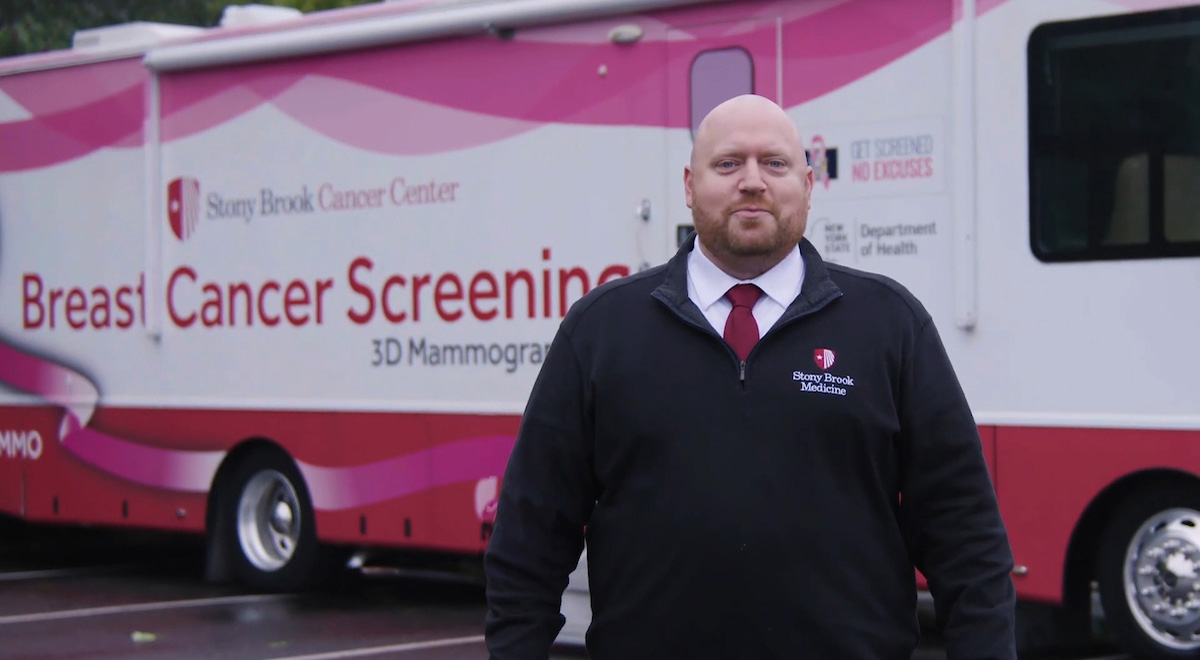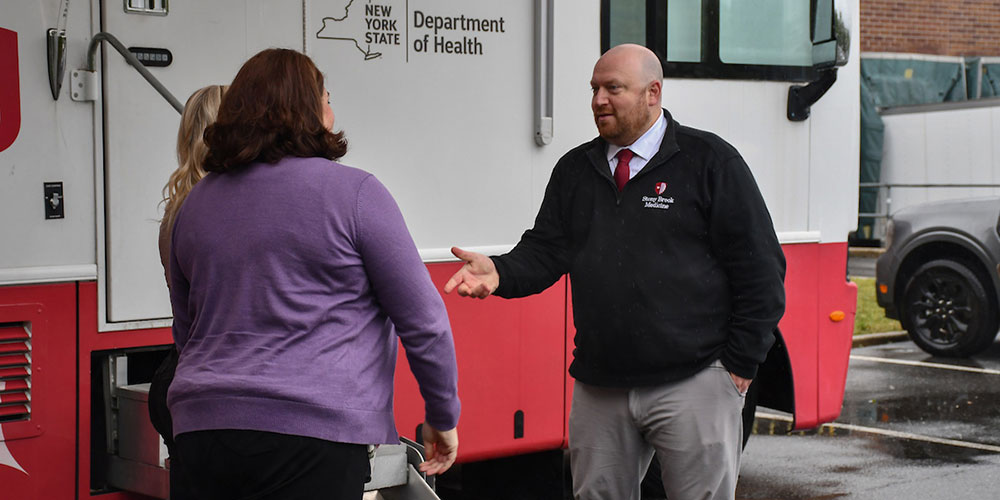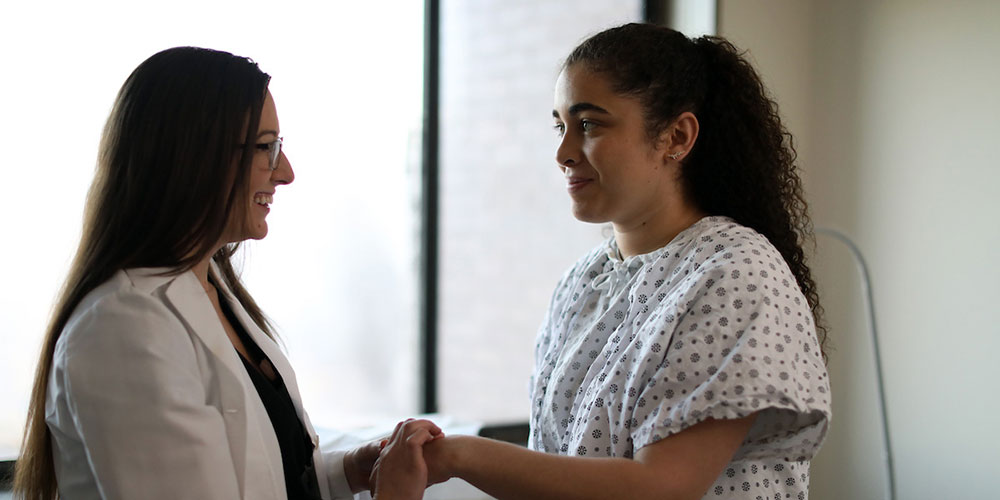Nearly 1 in 8 women in the United States will develop breast cancer in their lifetime according to the National Breast Cancer Association. In 2023 alone, there will be almost 300,000 new cases of invasive breast cancer diagnosed in the United States. One of the most important prevention measures for invasive breast cancer is early detection, and regular mammogram screening plays a critical role.
One St. George’s University School of Medicine and School of Graduate Studies alum, Patrick Dineen, MD, MBA, is dedicated to making screening for breast cancer more accessible for women on Long Island.
Impact of mammogram outreach
Dr. Dineen is the current program manager of cancer prevention and screening at Stony Brook Cancer Center. In his role, he helped establish their mobile mammography program.
The program brings breast cancer screenings to communities, especially those that are historically underserved, and since it began servicing the community in 2018 it has performed over 7,000 cancer screenings and detected over 40 cancers.
“We screen uninsured women, we also screen insured women. The working woman, who works hard, has a family, takes care of a partner, children, the last person she takes care of is herself,” said Dr. Dineen.

By creating the outreach program, it is working to use mobile mammograms to increase screenings.
“When we’re parking outside of her business, and she sees us, she knows she can be back at her desk in 15 minutes and get her annual screening done.”
Dr. Dineen’s outreach efforts extend beyond the Long Island community. He publishes papers and speaks at conferences to inspire other healthcare professionals to think about how they can better serve communities in need.
He is also the co-chair of mammography for the Mobile Healthcare Association, a national organization dedicated to increasing access to quality healthcare.
3 tips for Breast Cancer Awareness Month
As an expert in his field and a strong proponent of spreading awareness of cancer prevention and detection, Dr. Dineen has three tips that he hopes all current and future doctors will share with their loved ones and members of their community.
- Know your body the best. If there are any changes going on with your body, bring it to the attention of your healthcare provider.
- Don’t only care for yourself, but care for your friends and family. Bring your loved ones with you to a mammogram, and make sure they know when to get screened and all the options available for them.
- Get screened. No excuses. Breast cancer is a screenable cancer that is detectable early on, and that’s a benefit for everyone.
Finding your path in medicine
Although Dr. Dineen ended up with a career in cancer outreach, the path he took to medical school was not a traditional one. He majored in accounting and planned to enter a career in business after graduating with his bachelor’s degree.
It wasn’t long, though, until he realized his true calling was in medicine, and he took the necessary steps to apply to medical school. And for Dr. Dineen, choosing SGU for his medical school journey was an easy decision.
“What made St. George’s University stand out to me were the people that I knew in the healthcare system,” said Dr. Dineen. “I knew I would find the right home at SGU because of those I knew who had similar paths and attended SGU and were now happy, comfortable, and successful upon graduation.”

Evaluating where he is now, Dr. Dineen is grateful to have taken the road less traveled. It led him to experience what he says is his perfect day in the role.
“My perfect day is getting feedback from those I supervise or our community partners about the impact we made and hearing a good story about the benefit our program had on someone’s life,” said Dr. Dineen.
“Although it’s a bittersweet moment when our screening finds someone’s cancer, we also know that if we didn’t find it, the chances are that the patient may never have gotten screened for various reasons. Screenings allow us to find cancer before there is a physical manifestation. I can’t imagine a better day than hearing stories about the lives we’ve saved.”
Starting a Path to Medicine
The first step to finding your path to a career in medicine is to select a medical school that can help you reach your goals.
Learn how to compare your options in our article “How to Choose a Medical School: 9 Things to Evaluate Before Accepting.”

